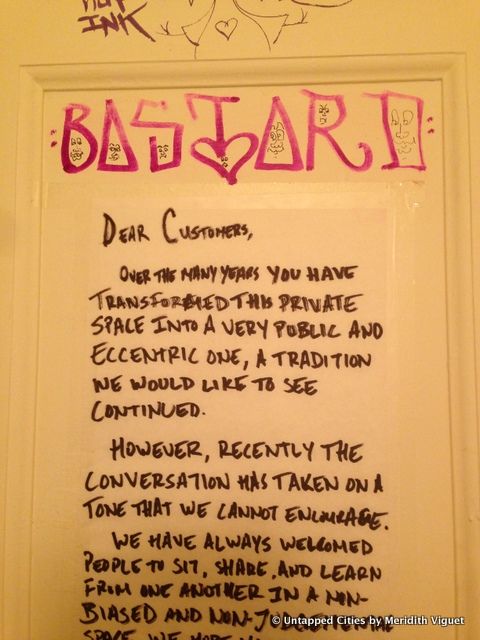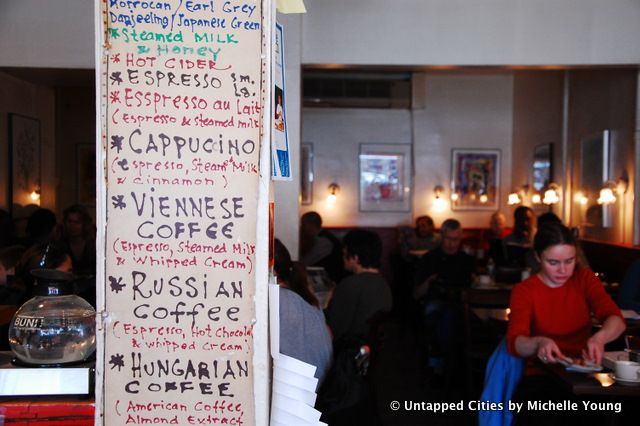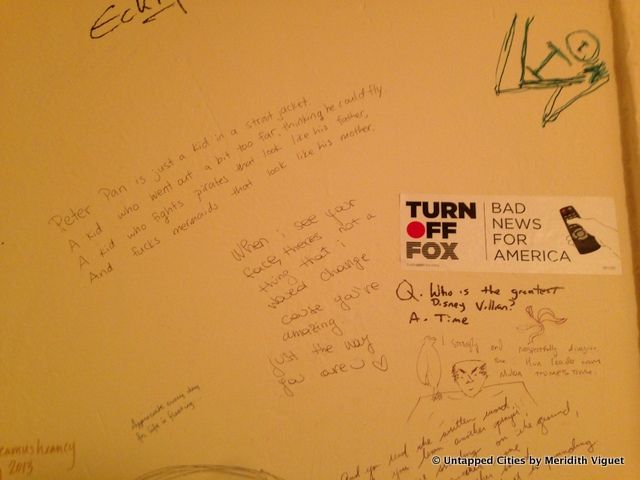Last Chance to Catch NYC's Holiday Notalgia Train
We met the voices of the NYC subway on our nostalgia ride this weekend!


The Hungarian Pastry Shop––an old-world bakery in Morningside Heights––became a local legend for two reasons: their strudel and their bathroom wall. The latter recently received a fresh coat of white paint as an “effort to maintain civil discourse,” says The New York Times. Frequent hyperintellectual patrons, including uptown novelists and Columbia and Barnard students, may have been to blame for the scribblings. These weren’t the unimaginative, Sharpied insults of high school bathrooms; the Shop’s bathroom walls constituted a flowing, interactive discourse on everything from Middle Eastern politics to Nietzsche. The walls served as a “strangely located forum” for customers to express themselves and interact with each other when the Shop’s hushed, studious atmosphere made conversation otherwise unlikely. But because the wall hosted often-divisive subject matter, it seemed inevitable that the conversation would eventually turn nasty. And it did. The change happened slowly, partly because a bathroom wall isn’t conducive to the responsive speed we have become accustomed to seeing on Internet forums.

Gradually, an increasingly hostile back-and-forth over Israeli-Palestinian relations developed on the walls. It reached a tipping point with one profane scribble: a swastika/Star of David hybrid. The author remains unknown. With free speech and the openness of intellectual debate as revered as they are in the coffee shop, 27-year-old owner Philip Binioris did not want to whitewash immediately. For Binioris, the swastika made conversations with patrons necessary. While a few customers expressed resignation to the idea that hostility was “part of debate,” others were adamant that the comments be taken down immediately. By July, he had decided that the walls necessitated a rare repaint.

The installation of a serious reminder accompanied the whitewashing, acknowledging the importance the space has acquired as a discussion forum. “HOWEVER,” the sign reads, “RECENTLY THE CONVERSATION HAS TAKEN ON A TONE THAT WE CANNOT ENCOURAGE.” Binioris views the whitewash not as the death of the Shop’s conversation-of-scribbles, but as a reset button. The tradition will continue––hopefully, if his sign works as intended, without the hostility and intimidation that led to its repaint. Indeed, less than three weeks into the new semester, the walls are already blanketed with strong––but civil––sentiments about Syria.
Subscribe to our newsletter